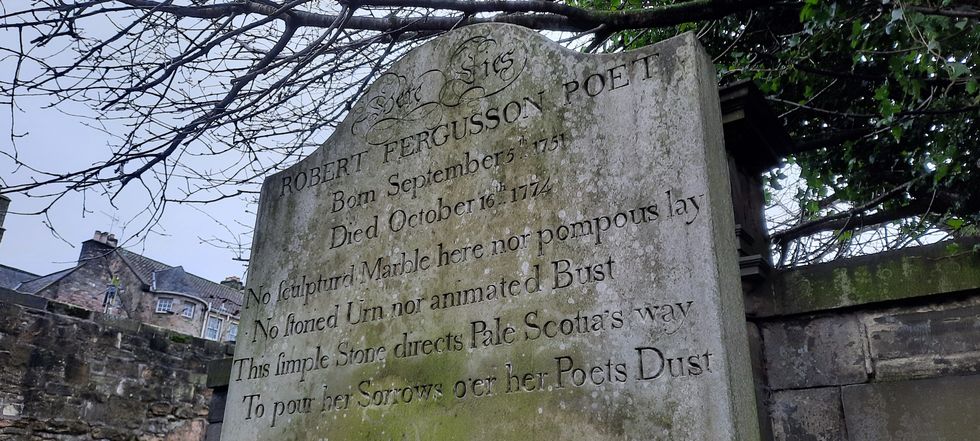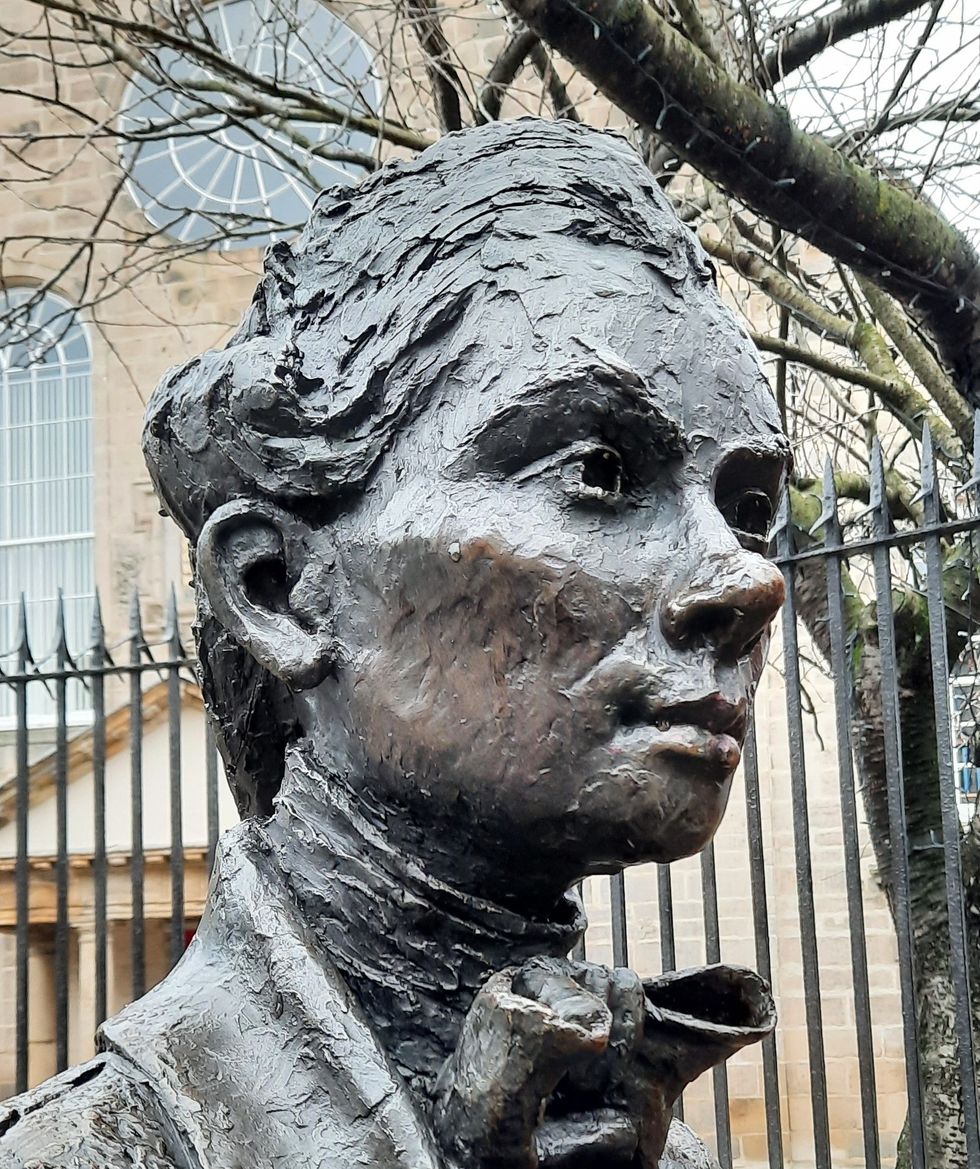
The legacy of an 18th century poet said to have inspired Robert Burns and known for his famous poem about “Auld Reikie” is to be commemorated on the 250th anniversary of his death.
Robert Fergusson died in an asylum in Edinburgh on October 17, 1774 aged 24, after being branded insensible following a head injury.
His poetry, written in Scots and English, drew inspiration from everyday life in Edinburgh, which is known as Auld Reikie – now spelled Reekie – Scots for “Old Smoky”, as the city walls trapped smog between the narrow buildings.
Fergusson wrote his most famous work, Auld Reikie, A Poem, a year before his death.
His work is credited with inspiring Scotland’s Bard, Robert Burns, who erected a memorial on his unmarked grave in Edinburgh in which he described him as “Scotia’s poet”.

In a letter to Dr John Moore in August 1787, Burns wrote he had almost given up on poetry until he read Fergusson’s work.
Events are taking place from Monday to commemorate Fergusson, including a podcast and an evening celebrating his work.
Author Andrew O’Hagan – who wrote acclaimed novel Mayflies – described Fergusson as “beautiful intelligence secreted in the Scots vernacular”, and “one of the most important figures in our literary culture”.
Professor Rhona Brown, leading the commemorations, said: “Robert Fergusson is one of Scotland’s most important poets, but he is often misunderstood.
Fergusson’s voice has been part of the inner ear, a human warmth, a subtle humour and a beautiful intelligence secreted in the Scots vernacular, and I’ve felt attentive to it all of my writing life
Andrew O'Hagan, author
“Writing in both Scots and English, one of Fergusson’s key themes is the ordinary life of Edinburgh, and he depicts the city, warts and all, in his masterpiece Auld Reikie. His poetry is astute and satirical, funny and razor-sharp.”
Fergusson is also credited with inspiring Robert Louis Stevenson, and Prof Brown said he was a “poet’s poet”.
She added: “The big figure who was deeply influenced by Fergusson is Robert Burns. He was influenced by Fergusson in quite a profound way, and we know this because in Burns’s autobiographical letter to Dr John Moore of August 1787, he says he had almost given up on poetry completely until he read Fergusson’s poetry.
“Burns erects a stone in memory, which describes Fergusson as Scotia’s poet and his grave as a place for people who love Scottish poetry to come and pay pilgrimage.”
The University of Glasgow College of Arts and Humanities’ podcast Stories from Glasgow will celebrate Fergusson’s legacy, from October 14.
Prof Brown has also organised an event, Remembering Robert Fergusson: A Night Of Poetry And Music, at St Cecilia’s Hall in Edinburgh on October 17, the anniversary of his death, which is nearly sold out.
On stair wi tub, or pat in hand/The barefoot housemaids loo to stand/That antrin fock may ken how snell/Auld Reikie will at morning smell
Auld Reikie, by Robert Fergusson
Guests include writer and broadcaster Billy Kay, acclaimed authors Andrew O’Hagan and James Robertson, musician David Hamilton and Professor Kirsteen McCue, professor of Scottish literature and song culture.
O’Hagan said: “For so many Scottish writers down the generations, Fergusson’s voice has been part of the inner ear, a human warmth, a subtle humour and a beautiful intelligence secreted in the Scots vernacular, and I’ve felt attentive to it all of my writing life.
“I applaud the important work being done on Fergusson at the University of Glasgow, and am honoured to take part in the event to mark the 250th anniversary of his death.
“Fergusson is one of the most important figures in our literary culture and we should celebrate him at every opportunity.”
In 2004, a bust of Fergusson was made by sculptor David Annand and installed in Edinburgh’s Canongate.
Kay said: “As an Ayrshire man steeped in the living Burns tradition, it was such a pleasure and a revelation for me to discover what Sydney Goodsir Smith called the ‘fizzing vitality’ of Fergusson’s poetry when I studied Scottish literature at the University of Edinburgh in the early 1970s.
“The love of it inspired me to produce and present a show and an iconic LP record called Fergusson’s Auld Reikie with a group of brilliant traditional musicians.
“I very much look forward to sharing my experiences with Fergusson for the audience.”













